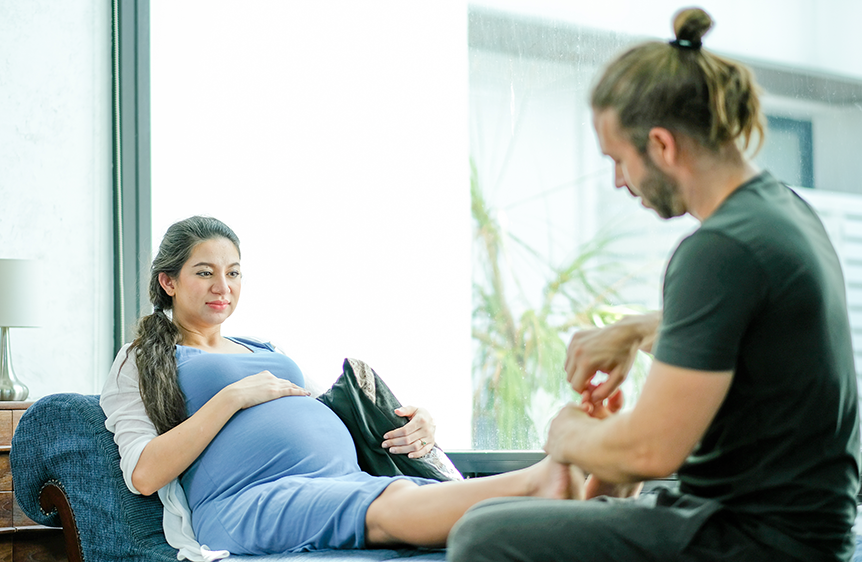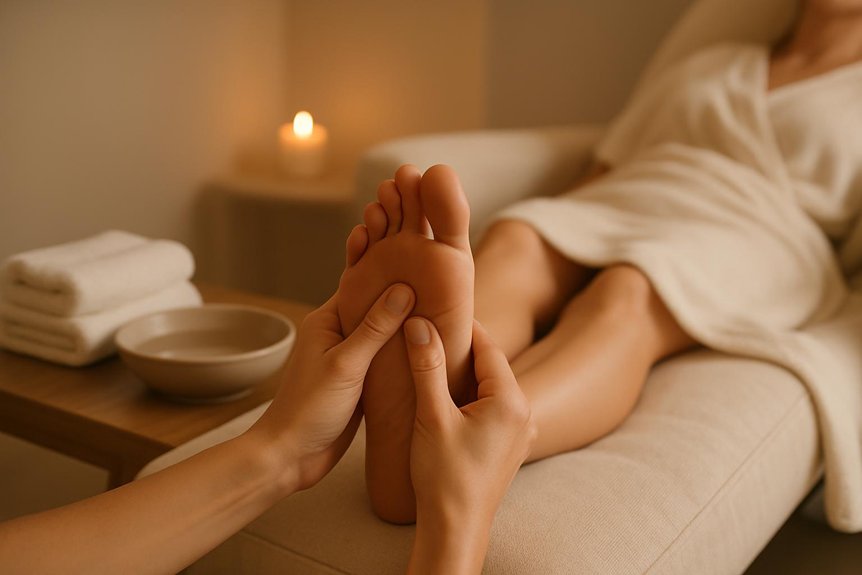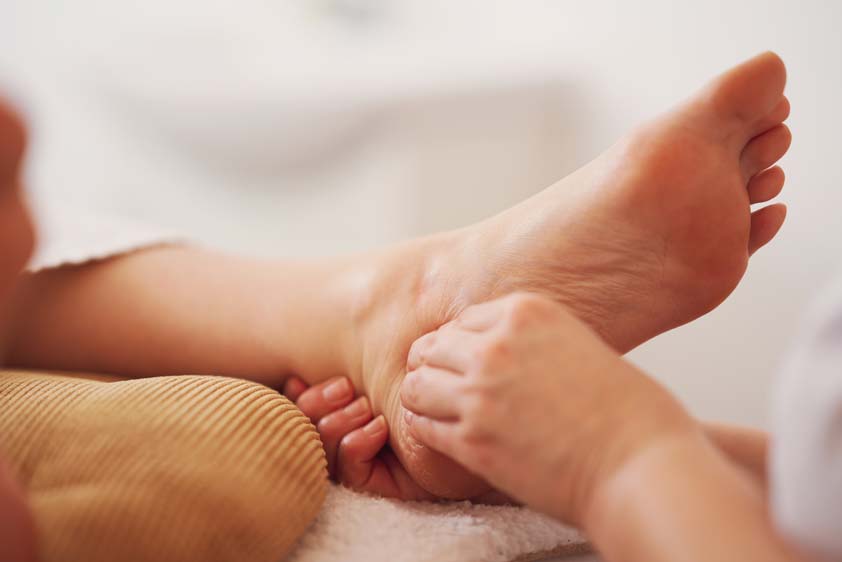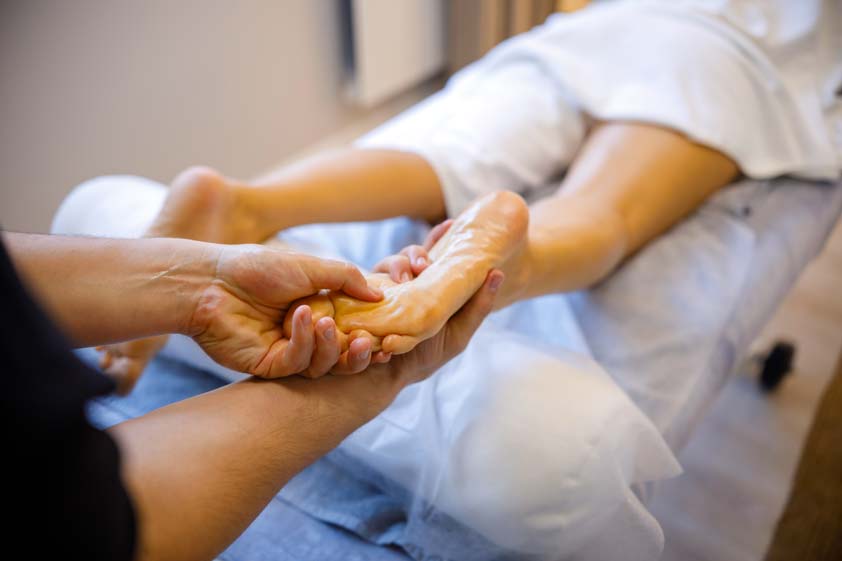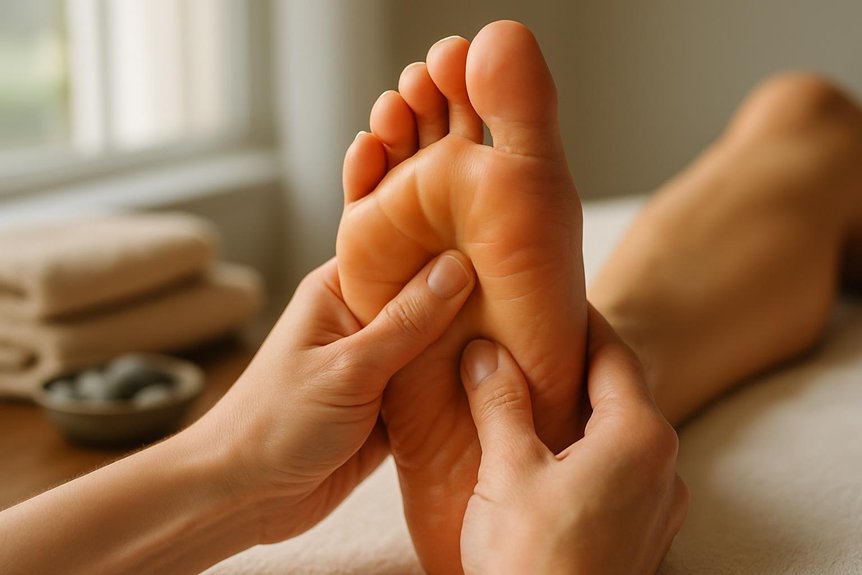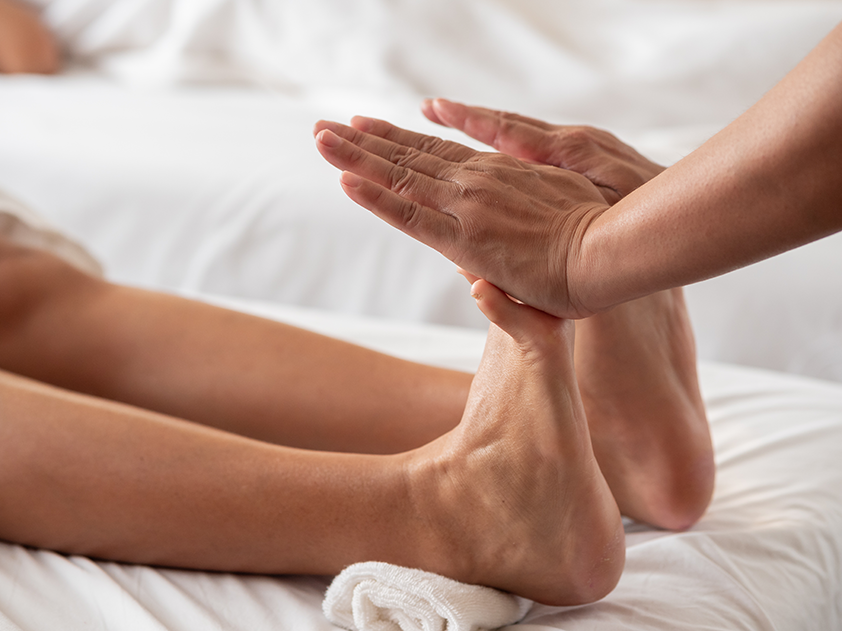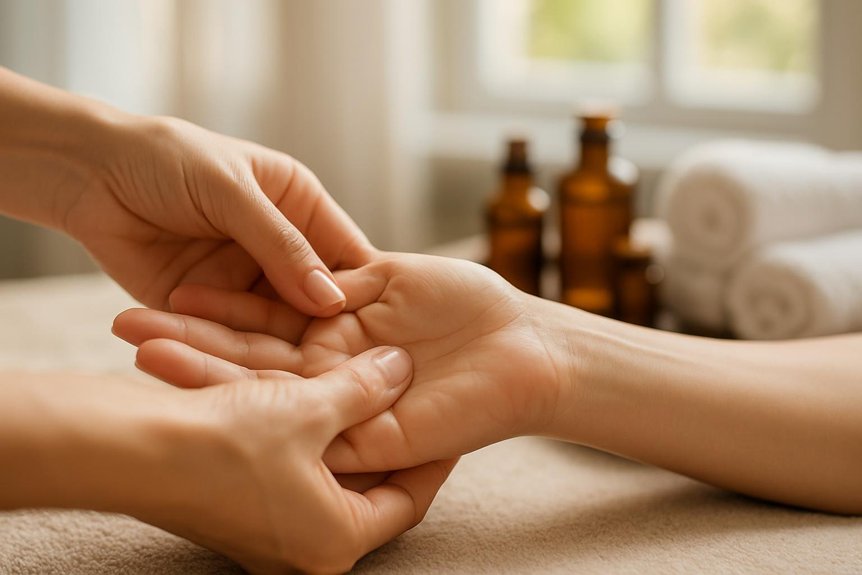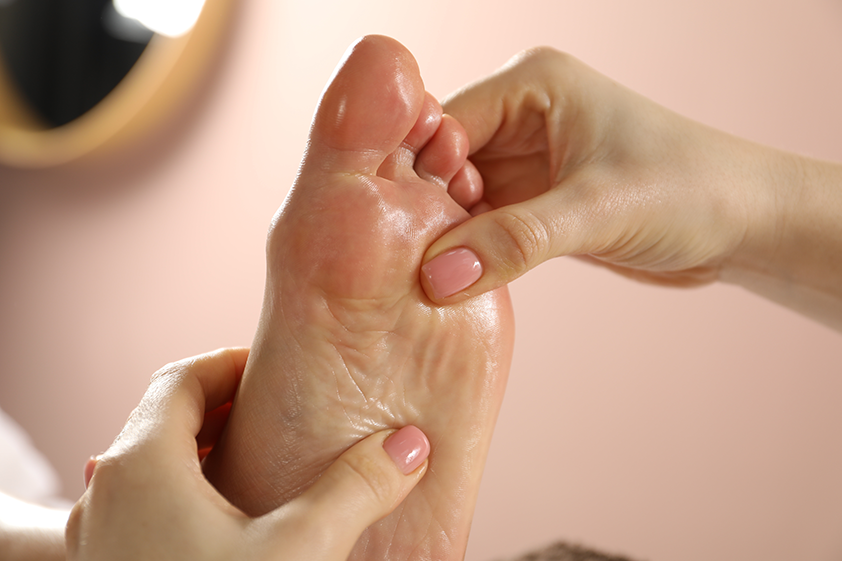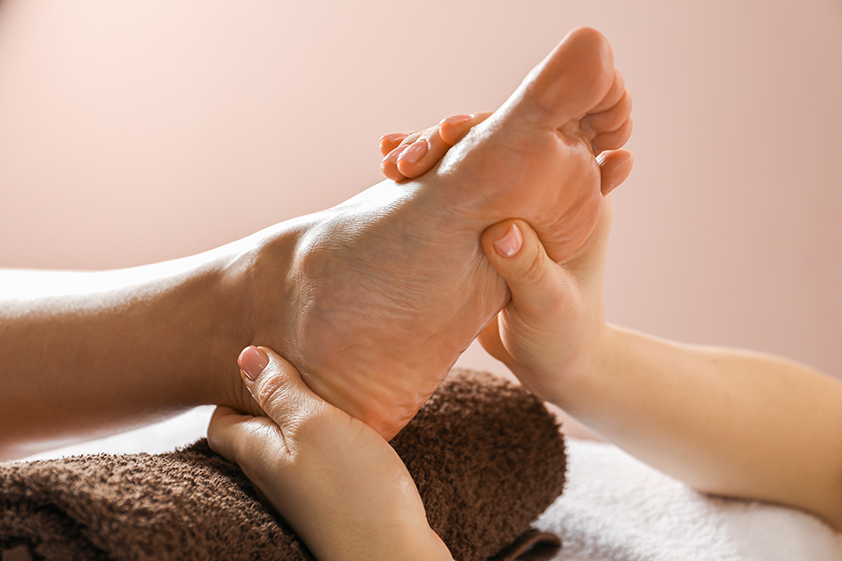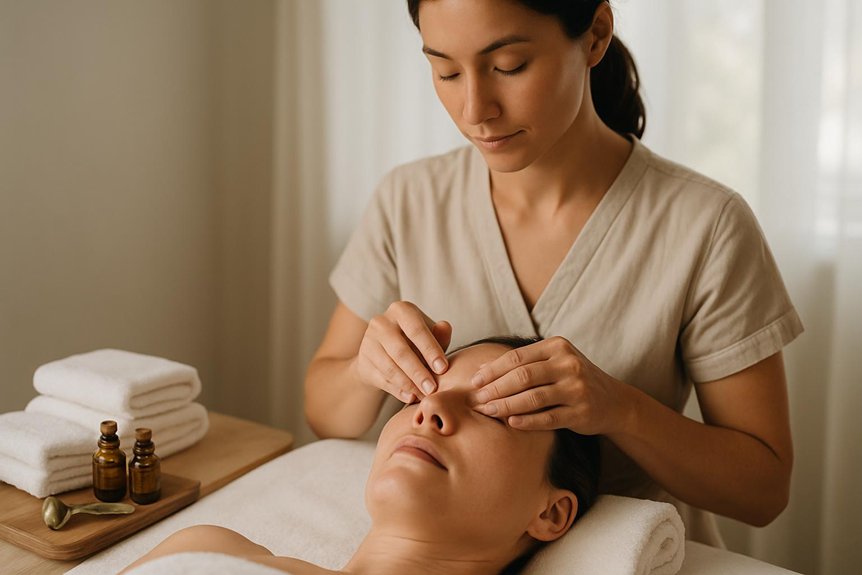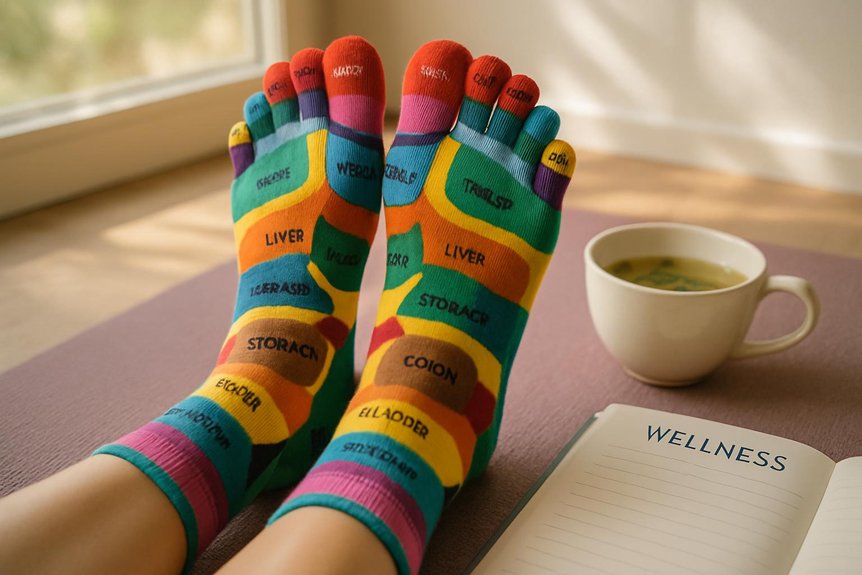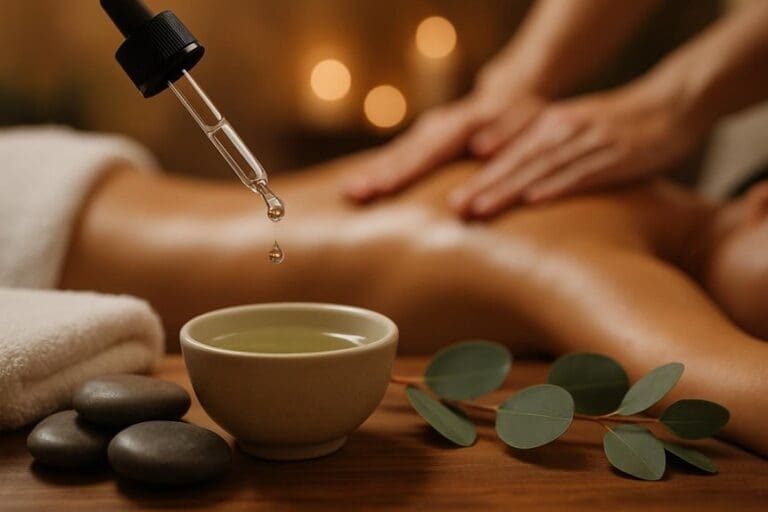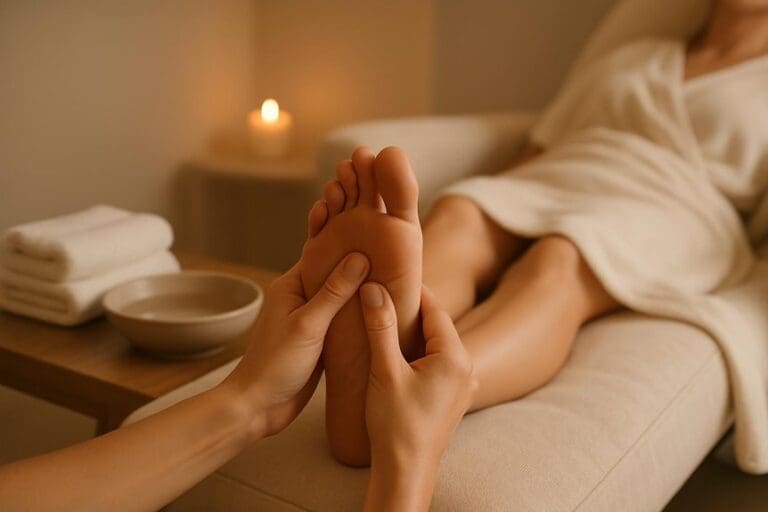It is sometimes offered as a complementary therapy in late pregnancy, often with the intention of promoting relaxation and supporting the body’s readiness for labour. Available research shows mixed and inconclusive evidence regarding its ability to induce labour. While many expectant mothers report feeling calmer and more comfortable after sessions, current clinical guidelines do not confirm this as a method to reliably start labour. More information provides insights into safety, session expectations, and the holistic supportive role zone therapy can play.
Understanding Reflexology and Its Principles
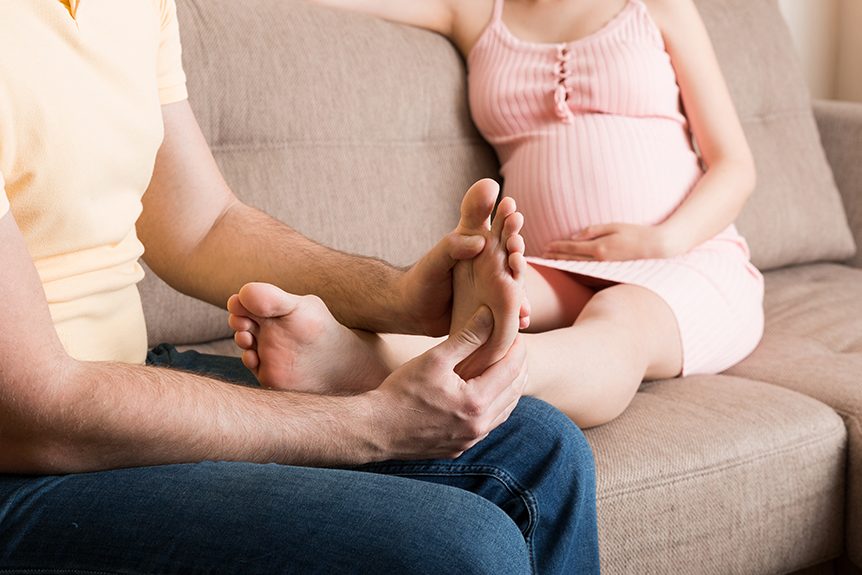
How does it support holistic wellness? It is a therapeutic practice grounded in the concept that specific points on the feet, hands, and ears correspond to organs and systems throughout the body. By applying targeted pressure to these reflex points, trained therapists aim to promote balance, enhance relaxation, and stimulate the body’s natural healing processes.
At Spa & Massage, practitioners approach each session with clinical sensitivity, tailoring techniques to individual needs for ideal comfort and efficacy. Evidence suggests that it may help reduce stress, alleviate tension, and improve overall wellbeing.
Clients often report a sense of deep calm and renewed vitality following treatment. It is integrated at Spa & Massage as part of a broader commitment to compassionate, patient-centered care that nurtures both body and mind.
For more insight, discover the healing power of zone therapy and how it can be integrated into your wellness routine.
How It Is Used During Pregnancy
During pregnancy, it is often incorporated as a non-invasive, supportive therapy to address the unique physical and emotional changes experienced by expectant mothers.
At Spa & Massage clinics, therapists with expertise in pregnancy care apply gentle, targeted pressure to specific points on the feet, hands, or ears, aiming to promote overall well-being, relaxation, and comfort.
This approach is tailored to alleviate common pregnancy-related symptoms such as stress, swelling, back pain, and fatigue, while avoiding any pressure points contraindicated during pregnancy.
Each sessions are conducted in a tranquil environment, prioritising safety and sensitivity to each client’s needs.
Our therapists consistently monitor for comfort and adjust techniques as pregnancy progresses, ensuring a nurturing, evidence-based experience that supports maternal health and emotional balance.
The Connection Between Reflex Therapy and Labour Onset
As pregnancy nears its conclusion, many expectant mothers seek supportive therapies that may help prepare the body for labour. Reflex therapy, a gentle, non-invasive treatment focusing on specific pressure points—especially on the feet—has been explored for its potential to encourage the natural onset of labour.
Clinical evidence remains limited, with studies showing mixed results regarding reflex therapy direct influence on labour initiation. However, at Spa & Massage, therapists observe that it may promote relaxation, reduce anxiety, and support overall wellbeing—factors that can gently assist the body’s readiness for labour.
What to Expect in a Session for Pregnant Clients
Upon arrival at Spa & Massage clinics, pregnant clients undergo a thorough consultation to assess their stage of pregnancy, overall health, and any specific concerns or preferences. This initial dialogue allows therapists to tailor each reflex therapy session with sensitivity to both physical and emotional needs.
During the treatment, clients are invited to recline comfortably while the therapist applies gentle, targeted pressure to specific points on the feet, corresponding to different body systems. Care is taken to guarantee the client’s comfort throughout, with regular check-ins and adjustments as needed.
Sessions are designed to promote deep relaxation, reduce stress, and support a sense of wellbeing.
At Spa & Massage, the approach is attentive and nurturing, fostering trust and reassurance for expectant mothers at every step.
Safety Considerations for Zone Therapy in Late Pregnancy
How can it be safely incorporated into late pregnancy care?
At Spa & Massage, safety is a fundamental priority when supporting clients in their third trimester. Reflex therapy for those approaching term requires modifications to guarantee comfort and avoid stimulating points that may be contraindicated, such as certain areas associated with uterine reflexes.
Therapists at Spa & Massage are trained to adapt their approach, using gentle pressure and carefully selected techniques suited to each individual’s stage of pregnancy and overall health.
Thorough consultations are performed to assess for any complications or contraindications, such as preeclampsia or high-risk pregnancies.
Open communication throughout the session allows clients to express any discomfort or concerns, ensuring the experience remains nurturing, supportive, and attuned to the unique needs of late pregnancy.
Evidence and Research on Reflex Therapy’s Role in Inducing Labour
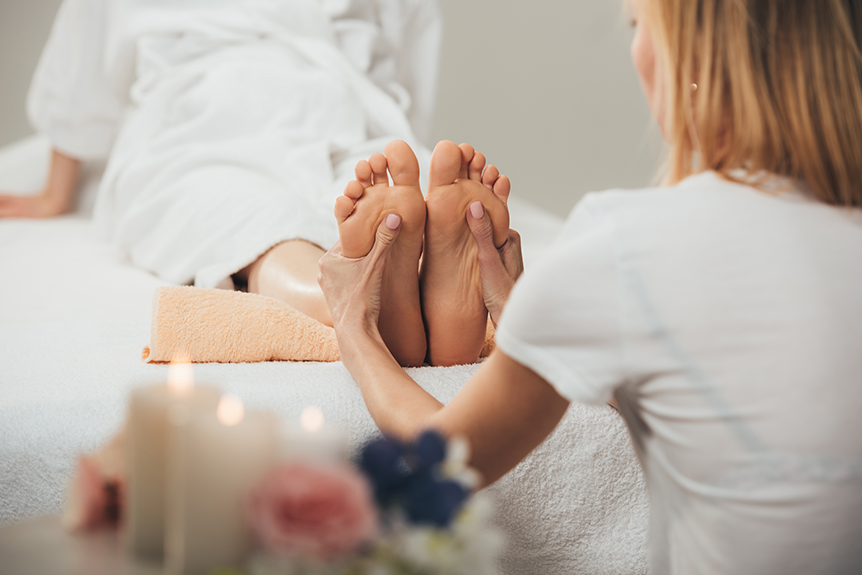
Current research on reflex therapy’s effectiveness in inducing labour presents mixed results, with some clinical studies suggesting potential benefits and others showing limited impact.
Safety remains a primary concern, and professional guidelines recommend that reflex therapy in pregnancy be delivered only by trained therapists familiar with maternity care.
At Spa & Massage, therapists follow evidence-based practices and prioritise the wellbeing of both mother and baby when offering reflex therapy in late pregnancy.
Clinical Studies and Findings
Increasing interest surrounds the potential of reflex therapy exology as a supportive therapy during labour, prompting rigorous scientific inquiry into its efficacy. Clinical studies examining reflex therapy influence on labour induction are limited but expanding.
Some trials report that it may help reduce pain intensity, lower anxiety, and possibly shorten labour duration for some individuals. However, findings on its ability to actively induce labour remain inconclusive.
Research often highlights the importance of individual physiological differences and the holistic nature of reflex therapy effects.
At Spa & Massage, therapists stay informed about emerging evidence and carefully tailor massage sessions to each client’s needs, prioritising comfort and well-being.
While research continues to evolve, it is valued for its potential to provide relaxation and emotional support as part of a detailed pregnancy care plan.
Safety Considerations in Pregnancy
When considering reflex therapy as a supportive therapy during pregnancy, safety remains a central concern for expectant mothers and healthcare providers alike.
Evidence-based practice suggests that, when performed by properly trained therapists, reflex therapy is generally regarded as safe throughout most of pregnancy, including the third trimester.
However, clinical guidelines recommend avoiding reflex therapy in cases of high-risk pregnancy, preterm labour, or certain complications unless specifically advised by a healthcare professional.
At Spa & Massage, therapists are highly trained to adapt reflex therapy techniques for pregnant clients, ensuring gentle, non-invasive methods and open communication about individual needs.
Prior to any treatment, a detailed consultation is conducted to assess medical history and well-being.
This patient-centered approach prioritises both mother and baby, creating a nurturing environment while upholding rigorous safety standards.
Feedback From Clients at Spa & Massage
At Spa & Massage, clients frequently share personal experiences regarding reflex therapy sessions during the later stages of pregnancy.
Often, they highlight perceived improvements in relaxation and comfort.
Therapists routinely address common questions about the safety, expected outcomes, and individual suitability of reflex therapy for those preparing for labour.
This feedback informs ongoing practice and guarantees that care remains responsive to clients’ needs and concerns.
Personal Experiences Shared
How do clients describe their experiences with reflex therapy during labour at Spa & Massage? Reports consistently reflect feelings of deep relaxation and increased comfort. Many describe a sense of calm, even amidst the intensity of labour, noting gentle support from therapists who are attentive to both physical and emotional needs.
Clients often mention a reduction in anxiety and a greater sense of control over their birthing experience.
Some have observed subtle shifts in sensations, such as softened tension or improved breathing, attributing these changes to the skilled, targeted touch provided during reflex therapy sessions.
While individual responses vary, feedback frequently highlights the respectful, nurturing environment at Spa & Massage, where each session is adapted to the client’s stage and preferences, fostering trust and reassurance throughout labour.
Common Questions Addressed
Building on the personal experiences shared by clients, several recurring questions arise regarding reflex therapy during labour at Spa & Massage.
Many clients inquire whether reflex therapy can reliably induce labour. Clinical evidence suggests that while reflex therapy may promote relaxation and ease discomfort, its ability to directly initiate labour remains inconclusive.
Clients also often ask about safety. The experienced therapists at Spa & Massage tailor treatments according to each client’s pregnancy stage and medical history, ensuring both comfort and security.
Another common question concerns the physical sensations experienced during a session. Clients typically report a deep sense of relaxation and reduced anxiety.
The team at Spa & Massage prioritises clear communication, supporting clients with expert guidance and attentive care throughout each reflex therapy session.
Complementary Approaches to Support Natural Labour
While many individuals seek to experience childbirth with minimal medical intervention, complementary approaches have gained attention for their potential to support natural labour. Evidence suggests that therapies such as reflex therapy , massage, aromatherapy, and relaxation techniques may help ease discomfort, reduce anxiety, and promote a sense of calm during the final stages of pregnancy.
At Spa & Massage clinics, therapists are trained in pregnancy massage and reflex therapy , using gentle pressure and tailored techniques to support expectant individuals’ wellbeing. These approaches focus on nurturing both body and mind, recognising the importance of emotional comfort as well as physical readiness.
While scientific understanding continues to evolve, many clients report increased relaxation and empowerment when integrating these therapies as part of a holistic approach to childbirth preparation and support.
When to Seek Guidance From Your Midwife or Healthcare Provider
Although complementary therapies such as reflex therapy and massage can offer valuable support during pregnancy and labour, it remains imperative for individuals to consult their midwife or healthcare provider when considering these approaches.
Open communication ensures that any treatments align with the individual’s medical history, pregnancy progression, and specific needs.
At Spa & Massage, therapists are trained to work collaboratively, always prioritising safety and evidence-based care.
Immediate consultation with a healthcare provider is advised if there are symptoms such as reduced fetal movement, vaginal bleeding, persistent pain, or any concerns about labour onset.
Personalised guidance from a midwife or doctor helps to clarify the suitability of therapies like reflex therapy at various pregnancy stages, fostering a sense of reassurance and support throughout the journey to parenthood.
Conclusion
While reflex therapy offers a gentle hand to hold during the final steps toward childbirth, the evidence for its ability to directly start labour remains inconclusive. Nonetheless, this supportive therapy can ease discomfort, reduce stress, and nurture a sense of wellbeing for expectant mothers. As with any birth preparation, collaboration with healthcare professionals is crucial to guarantee safety and individualised care, allowing mothers to move forward with confidence on their unique journey to meeting their baby.
